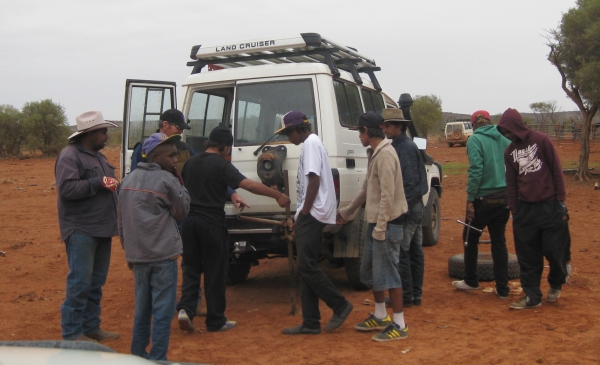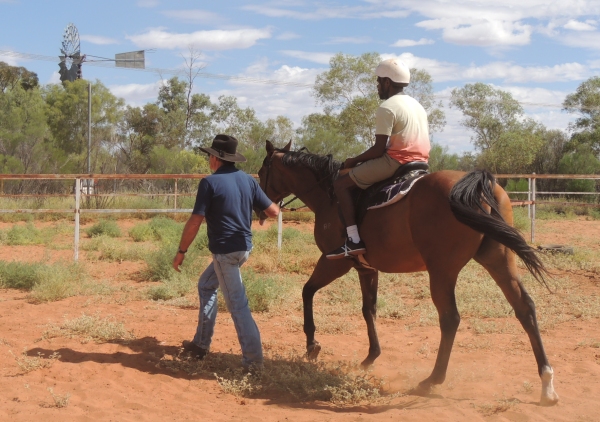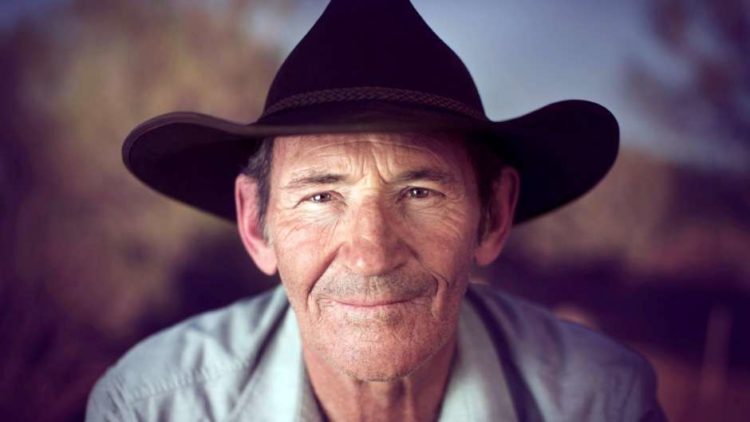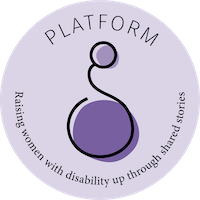In Will’s words …
Who inspires me: The young people who come through Bush Mob.
Best advice: Keep it simple, you only have to deal with today, you are the boss of yourself.
Will MacGregor is tired. He’s been at this game for 18 years. And still there are setbacks. Still he sees young Aboriginal people with whole futures ahead fall prey to drugs, the light in their eyes extinguished along with their dreams for the future. There’s still too much crime, too much abuse, too much sadness.
But Will has also seen the transformations. He’s helped hundreds of young people escape the clutches of drug addiction by providing a safe house for rehabilitation, he’s transformed thousands by escorting them to their traditional country where they seek solace in nature’s embrace and connect with their elders. And he’s helped dozens overcome mental demons with the healing magic of horsemanship.
Will too has faced the blackness of drug addiction. He once attempted to take his own life. The horror of this time has put Will on a quest to help young people avoid the pain he once experienced. He founded Bush Mob in 1998 in Alice Springs to do just this. Such is the success of Bush Mob that Will won Australian of the Year for the Northern Territory this year. But Will is not one to bask in success. There’s more work to do, more people to help. He may be tired, but this knowledge forces him onward.

A rough start
After Will’s dad died from cancer when he was four, his mother sat in their grim one-bedroom flat on the outskirts of Melbourne and tossed a coin – heads and they’d move to New Zealand, tails and they’d go to Zimbabwe, then called Rhodesia. Tails it was. Will’s mum got a job at a girls’ boarding school and, wanting to toughen up her fatherless son, she sent him off to a boys boarding school as a four-year-old.
Will remembers the harshness of this remote school. The rules, the punishment, the beatings. He would attempt to run away, only to be dragged back to face the wrath of the supervisors. It was during this lonely and terrible time that Will found solace in nature. His heart would come alive in recognition of the aching beauty of his surrounds. The wild animals moved him to awe. It was this deep connection with country that would lay the framework for his work with Bush Mob in the distant future.
His heart would come alive in recognition of the aching beauty of his surrounds.
Lure of the wilderness
After finishing school and national service Will moved to Perth to be with his mother and sister. Here as an adult, he began to seek out the mind-numbing comfort of drink and drugs to dull the pain of his childhood. He knew he had to escape from the life he was living, so he applied for a job in Arnhem Land in the remote reaches of the Northern Territory. Here the woodlands, the rocky outcrops and the tidal creeks reminded him of the wilds of Africa. He noted another striking similarity with Africa – while not officially declared, it seemed apartheid was similarly prevalent in Australia.
Despite the race divide, Will came to know many of the Aboriginal people around him, and sought knowledge from the medicine men and elders of the people here. He remembers watching a medicine man mystically become ‘younger’ before his eyes after entering the ocean to commune with his animal of the dreaming – a whale. With this wise and seemingly magical man by his side, he learned to track animals, watch the tides, identify birds. “I realised how much we could learn from the Aboriginal people in our country,” Will says. “But first I had to get straight.”
“I realised how much we could learn from the Aboriginal people in our country.”
Suicide attempt
The move north had done nothing to lessen Will’s addictions. He was taking drugs, drinking, punching walls, harming himself and others. He’d wake up with no memory of the day before, just a deep sense of shame he could only ease with the bottle. “I came to realise I had three options – the lock up, a psychiatric ward or death,” he says. “I couldn’t see my way out.”
So desperate did Will become that he took a rifle that he used in his job as a ranger, stuck his toe on the trigger and aimed the muzzle at his head. When he awoke the next morning, there was a bullet hole in the ceiling and a burn mark up his face.
Life becomes richer
Will had been living this life for around eight years when he woke up in hospital after a particularly bad bender. As he forced his eyes open he saw rays of sun spill through the window. And something shifted inside. “It was like I’d been living in an abyss like a jar of honey that I couldn’t get out of,” he says. “But at that moment I just got it. I knew I had to stop the drink and the drugs.”
Since that day 28 years ago, Will has remained clean. He says it remains a daily task to replace his tendency for addiction with a more spiritual life. “I have to do that daily – to get up and meditate, to spend time in nature,” he says. “If I don’t, I start thinking weirdly again. Life has become really rich since then.”

Desire to help
In time Will got a job at a supportive accommodation service for young people in Alice Springs, in Australia’s desert heart. Here he witnessed the despair of the petrol sniffing epidemic that was gripping so many Aboriginal communities at the time – young people damaging their brains beyond repair by sniffing the petrol’s toxic fumes. He likened their despair to the way he had once felt. And he knew he had to do something to help them.
It started small – with a four-wheel-drive that Will would drive around town picking up troubled kids and offering them a day away from their normal lives with a trip to the bush. Nothing formal, nothing fancy. Just a “hey do you want to get out of town for the day?” His very first trip he took eight kids – half of them wasted on drink and drugs – and journeyed to a waterhole along with a local elder. Some hadn’t eaten for days – so Will fed them – some had had little sleep – kept awake in violent homes or from the effects of drugs – so they slept. They walked, yarned by the campfire, played some guitar. “From day one it just felt right,” Will says. “Some people complained that we were just giving them the day off school, or some free food but so what? If we can give them a day off from their normal lives we’ve helped.”
Will came to realise these kids needed more than a day away. They needed a safe haven where they could escape the trauma of their everyday lives. “They were really sick – spiritually, emotionally, physically,” he says. “There were significant health issues – STDs, scabies, head lice, diabetes, mental health. They really needed some help.”

Healing power of horses
In 2005, Will received funding to open five beds to at-risk kids, which has today grown to 20 beds. The youths stay for 16 weeks, and receive medical care, counselling, detox help and a structured way of life.
In 2007 Will also started taking groups of troubled youths for horse culture healing, in which Aboriginal stockmen are paid to teach the young people horsemanship. Will says there’s something magical about the transformations he sees among these people as they spend time with horses, riding side by side, sharing stories and learning to check and repair fences. “In town they might be I’m big and tough and I’ll steal your car but if I’m out there learning about initiation law and on a vast cattle station on a big horse I might not be so gung ho. But then I learn to ride, to crack a whip, to plait a belt and none of my friends have ridden and then there’s a photo of me on a horse on Facebook – that means a lot. There’s this sense of confidence, of pride. And there’s a real gentleness about it – we’re all into natural horsemanship – so everyone’s hype goes down to a level place.”

Bush magic
Will believes much of the benefit of the bush and horse experiences are about replacing the traditional initiation rites of passage that are no longer the norm. “There’s no-one giving them a safe space to take risks,” he says. “So they are taking risks in other ways – stealing, drinking, whatever. We’re working with 12 to 25 year olds. They are meant to be taking risks, meant to be doing stupid things – we’ve got to give them a safe space to do that.”
Such a simple notion is having mass results. Will points out the young girl who entered Bush Mob as a violent drug addict, before kicking her habit, becoming Bush Mob’s bookkeeper and going on to earn a job with Desert Knowledge. Or the young guy who’s become a train driver, or the many who’ve earned apprenticeships or any number of young people who’ve overcome their addictions and gained a chance at a fulfilling life. It’s these people and the lives they’re now leading that spur Will on. “I’ve been on the other side and it’s a pretty grim place,” Will says. “I don’t want anyone else to have to go through what I did.”
“There’s no-one giving them a safe space to take risks.”
Get involved …
Find out more about Bush Mob here.



